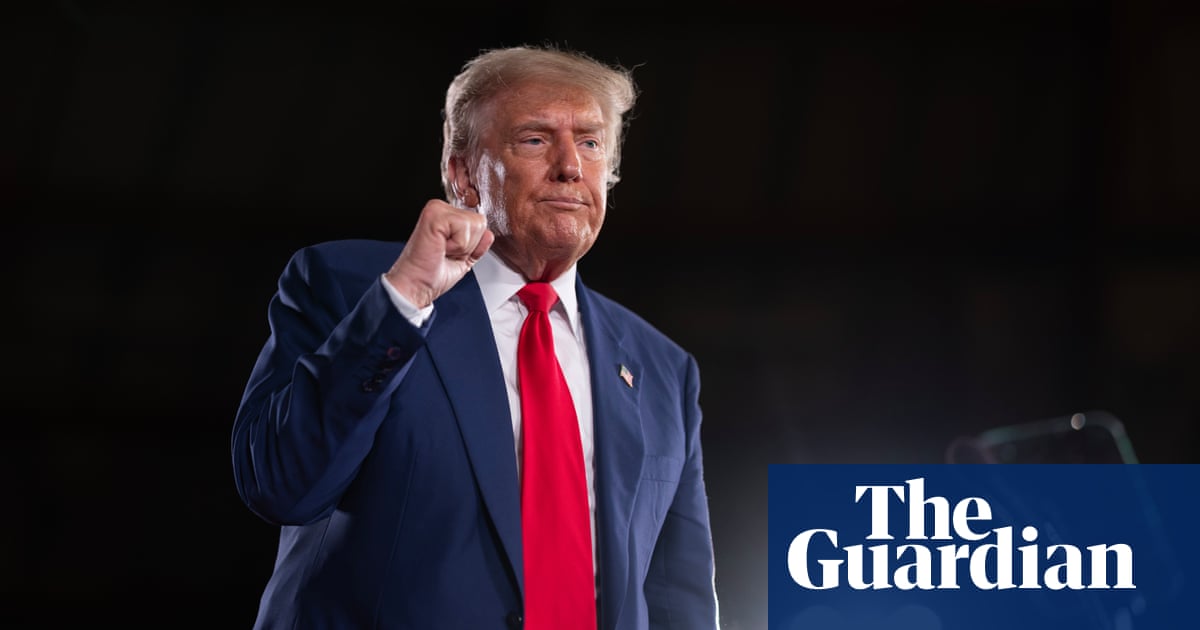Tough-guy talk about ‘radical-left lunatics’ is an extreme spin on an old playbook but plays well with his Republican base
Donald Trump delights in railing against his enemies, and when protesters set up encampments at college campuses nationwide to decry Israel’s invasion of Gaza, the former US president gained another useful antagonist.
For some observers, Trump’s language is both dangerous in the current political environment as he seeks to rile up his base and a dark hint at how he might treat dissent and demonstrations should he defeat Joe Biden and achieve his ambition of returning to the White House in 2025.
His language is certainly extreme.
“These are radical-left lunatics, and they’ve got to be stopped now,” Trump said earlier this month outside the Manhattan courtroom where he is being tried on business fraud charges.
The day prior, police had rounded up demonstrators at Columbia University, home to one of the most contentious protest sites. Trump called the sweep “a beautiful thing to watch”.



This is the best summary I could come up with:
Donald Trump delights in railing against his enemies, and when protesters set up encampments at college campuses nationwide to decry Israel’s invasion of Gaza, the former US president gained another useful antagonist.
For some observers, Trump’s language is both dangerous in the current political environment as he seeks to rile up his base and a dark hint at how he might treat dissent and demonstrations should he defeat Joe Biden and achieve his ambition of returning to the White House in 2025.
But the campus unrest has nonetheless vexed the Democratic president as he navigates a backlash to his support for Israel, which may cost him votes essential to winning the November election against Trump, the presumptive Republican nominee whom polls show currently has a narrow lead over Biden.
While the majority of college demonstrations in the United States have been peaceful, police arrested more than 2,500 people at the protests, which have spread to campuses in Europe, the UK, Lebanon and India.
“Doesn’t matter how non-violent they are, how admirable their goals are, dissenting student movements are always unpopular,” said Cohen, blaming the decades-long trend on America’s “overarching culture of conservatism”.
“Usually when you repress it, it just gets worse in terms of dissent and protest, because people who may not have been concerned about, in this case, Israel and Palestine, they are upset when their friends get arrested for just sitting on a plaza,” Cohen said.
The original article contains 810 words, the summary contains 238 words. Saved 71%. I’m a bot and I’m open source!